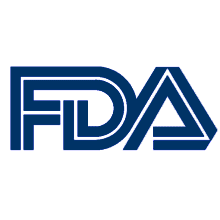Philip Morris USA’s domestic cigarette shipment volume during the third quarter to the end of September, at 30,828 million, was 6.2 percent down on that of the third quarter of 2016, 32,864 million.
Marlboro volume was down by 6.0 percent to 26,445 million, while the volume of the company’s other premium brands was down by 6.9 percent to 1,567 million. Its discount-brand volume was down by 7.3 percent to 2,806 million.
In presenting its third-quarter and nine-month figures, Altria said that total cigarette industry volumes had declined by an estimated 3.5 percent during the third quarter. ‘The smokeable products segment’s reported domestic cigarettes shipment volume declined by 6.2 percent in the third quarter, primarily driven by the industry’s rate of decline, trade inventory movements, retail share declines and one fewer shipping day,’ it said. ‘After adjusting for trade inventory movements and calendar differences, PM USA’s domestic cigarettes shipment volume decreased by an estimated 4.5 percent.’
Meanwhile, Altria reported that for the first nine months of 2017, total cigarette industry volumes had declined by an estimated 3.5 percent. ‘The smokeable products segment’s reported domestic cigarettes shipment volume decreased by 4.0 percent, primarily driven by the industry’s rate of decline, retail share declines and one fewer shipping day, partially offset by trade inventory movements,’ it said. ‘When adjusted for trade inventory movements and calendar differences, PM USA’s domestic cigarettes shipment volume decreased by an estimated 4.0 percent.
PM USA’s domestic-market retail share during the three months to the end of September, at 50.5 percent, was down by 0.6 of a percentage point on that of the third quarter of 2016.
Marlboro’s market share was down by 0.5 of a percentage point to 43.2 percent, while the share of the company’s other premium brands was down by 0.1 of a percentage point to 2.7 percent, and the share of its discount brands was unchanged at 4.6 percent.
Middleton’s cigar shipment volume during the first three months, at 385 million, was increased by 6.6 percent on that of the three months to the end of September 2016, 361 million, as Black & Mild volume rose by 6.7 percent to 381 million and other-cigar volume was unchanged at four million.
USSTC’s domestic smokeless products shipment volume during the third quarter, at 212.6 million cans and packs, was down by 1.8 percent on that of the three months to the end of September 2016, 216.4 million.
Shipments of Copenhagen and Skoal, taken together, were down by 2.0 percent to 195.7 million packs and cans, while shipments of other brands were increased by 1.2 percent to 16.9 million packs and cans.
USSTC reported that its domestic shipment volume had declined by 1.8 percent and 1.7 percent in the third quarter and first nine months of 2017 respectively, driven primarily by declines in sales of Skoal. ‘After adjusting for trade inventory movements and other factors, USSTC estimates that its domestic smokeless products shipment volume declined approximately three percent in the third quarter and 1.5 percent for the first nine months,’ Altria said. ‘USSTC estimates that the smokeless products category volume grew approximately 0.5 percent over the past six months.’
USSTC’s retail share of the domestic smokeless products market during the three months to the end of September, at 53.8 percent, was down by 1.1 percentage points.
The share of Copenhagen and Skoal, taken together, fell by 1.2 percentage points to 50.4 percent, while the share of the company’s other brands increased by 0.1 of a percentage point to 3.4 percent.
Altria’s 2017 third-quarter reported diluted earnings per share (EPS) were increased by 73.2 percent to $0.97 on those of the third quarter of 2016, with comparisons affected by special items. Third quarter adjusted diluted EPS, which excludes the impact of special items, increased by 9.8 percent to $0.90.
“Altria delivered outstanding performance in the third quarter and for the first nine months of 2017 as our core tobacco operating companies generated strong income growth,” said Marty Barrington, Altria’s chairman, CEO and president. “Our financial performance continues to strengthen in the second half, as we expected.”
“And we continued to focus on rewarding shareholders through the first nine months, paying out more than $3.5 billion in dividends and repurchasing nearly $2.4 billion in shares. In August, Altria’s board of directors voted to increase our quarterly dividend per share by 8.2 percent.”
“The business is performing well in a competitive environment, and we continue to expect full-year adjusted diluted EPS growth of 7.5 percent to 9.5 percent.”





